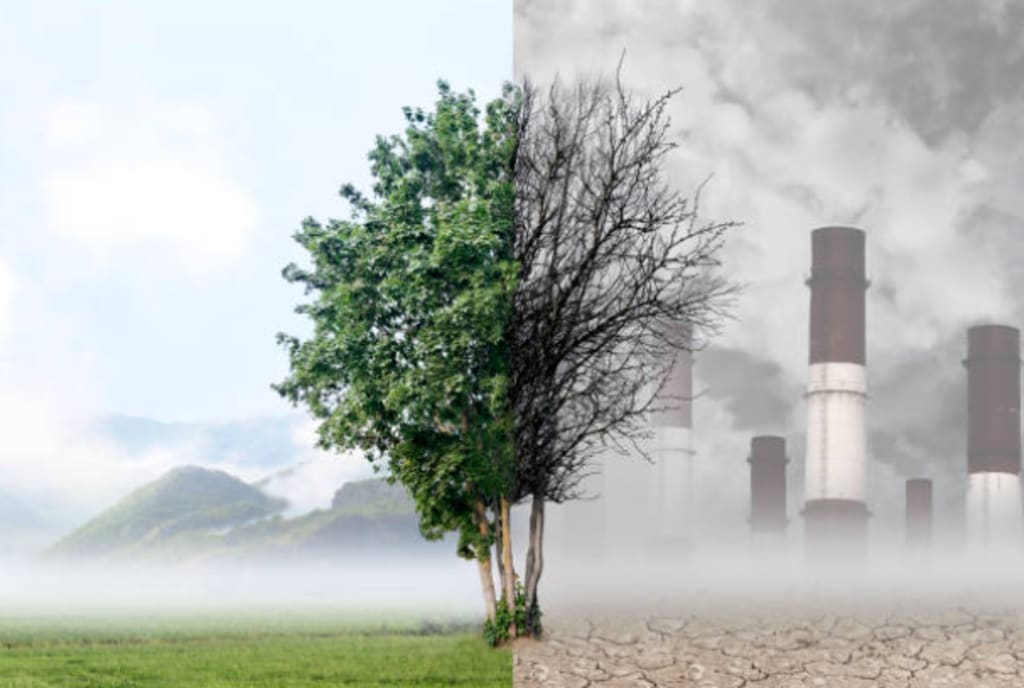"Humans Are Not Consuming Oxygen; Oxygen Is Consuming Humans"
Now don't humans consume oxygen Oxygen consumes humans

Introduction
The way humans have started cutting down the trees doesn't seem like humans need oxygen, seem like the trees seem to eat humans.
The intricate dance between humans and oxygen has long fascinated scientists, philosophers, and thinkers throughout history. We often think of ourselves as consumers of oxygen, an essential element for our survival. However, a deeper examination of this relationship reveals a more profound truth: oxygen, in its own way, consumes humans. In this article, we will explore the multifaceted partnership between humans and oxygen, shedding light on the intricate dynamics at play and the profound impact this relationship has on our existence and the planet.
I. The Breath of Life
At its most fundamental level, oxygen is the very essence of life on Earth. It is a vital component of the air we breathe, and our bodies have evolved to depend on it for survival. With each inhalation, oxygen flows into our lungs, where it is absorbed into our bloodstream and transported to cells throughout our body. There, it becomes a key player in the complex biochemical processes that power our existence.
A. The Oxygen We Breathe
Oxygen constitutes about 21% of the Earth's atmosphere, making it readily available for all aerobic organisms, including humans. We inhale this life-giving gas, and within our cells, it takes part in a process known as cellular respiration. Here, oxygen acts as a catalyst, facilitating the breakdown of glucose and other nutrients to produce adenosine triphosphate (ATP), the molecule that stores and transfers energy within our cells.
B. Cellular Respiration: A Partnership
Cellular respiration is a biological dance where oxygen, glucose, and enzymes collaborate to generate energy. In this intricate process, oxygen plays a vital role by accepting electrons from glucose molecules and helping release energy that powers various cellular functions. Oxygen doesn't merely serve as our sustenance; it is a dynamic participant in the very process that defines our vitality.
II. The Oxygen-Human Symbiosis
Beyond the biochemical intricacies, the partnership between humans and oxygen extends far deeper, encompassing a profound symbiotic relationship that has shaped the course of life on Earth.
A. The Circle of Life
The relationship between humans and oxygen is part of a grand cycle of life. Inhaling oxygen and exhaling carbon dioxide (CO2), humans contribute to a continuous exchange of gases that sustains all aerobic life forms. As we breathe out, we release CO2, a waste product of cellular respiration. This CO2-rich exhalation is then absorbed by plants during photosynthesis, where they, in turn, release oxygen as a byproduct. This interconnectedness highlights the interdependence of all living organisms on Earth.
B. Evolutionary Significance
Oxygen's role in the evolution of life on Earth cannot be overstated. Around 2.3 billion years ago, the Great Oxygenation Event marked a pivotal moment in our planet's history when oxygen levels began to rise significantly in the atmosphere. This oxygenation allowed for the emergence of aerobic organisms, including humans' distant ancestors. Over eons, oxygen played a crucial role in shaping the development of complex life forms and ecosystems, leading to the diversity of species we see today.
III. Environmental Impact
While humans depend on oxygen for survival, our actions can have a direct impact on the availability of oxygen in the atmosphere and, in turn, on our own well-being. Environmental factors and human activities can disrupt the delicate balance of oxygen production and consumption.
A. Pollution and Oxygen Depletion
Pollution, particularly the emission of greenhouse gases such as carbon dioxide and methane, contributes to environmental degradation and climate change. These pollutants affect the health of oxygen-producing organisms like trees and phytoplankton, ultimately influencing the planet's oxygen balance. As forests are cleared, oceans are polluted, and ecosystems are disrupted, the ability of the Earth to regenerate oxygen is compromised, potentially leading to lower oxygen levels in the atmosphere.
B. Deforestation and Its Consequences
Deforestation, driven by agriculture, urbanization, and industrialization, directly impacts the oxygen cycle. Trees play a crucial role in producing oxygen through photosynthesis. When trees are cut down and forests are cleared, not only is oxygen production reduced, but the stored carbon in trees is released as CO2 when they are burned or left to decay. This further contributes to the greenhouse effect and climate change.
C. Climate Change and Oxygen Levels
Climate change, resulting from the accumulation of greenhouse gases in the atmosphere, poses a long-term threat to oxygen levels. Rising temperatures and altered weather patterns can disrupt ecosystems, leading to potential changes in the distribution and health of oxygen-producing organisms. Additionally, ocean warming and acidification can impact phytoplankton, which are responsible for a significant portion of Earth's oxygen production.
Conclusion
The notion that "Humans are not consuming oxygen; oxygen is consuming humans" invites us to reevaluate our relationship with the natural world. It highlights the intricate and symbiotic partnership between humans and oxygen, emphasizing that we are not merely consumers but integral participants in the circle of life.
Recognizing this relationship underscores our responsibility to be stewards of the environment. It reminds us that the health of our planet directly impacts our well-being, and by protecting and preserving Earth's ecosystems, we ensure the continued availability of oxygen for all life forms.
Oxygen is not just a resource; it is a silent partner in the grand symphony of life on Earth. By nurturing this partnership and taking proactive measures to address environmental challenges, we can safeguard our planet's ability to sustain us and future generations. In doing so, we honor our role in the intricate dance of life and the profound significance of oxygen in our existence.
About the Creator
MD.Likhon Hossain
Hello, sir, I am a content writer that you know. I regularly submit here unique content. If you are feeling boring. You can read my article to fresh yourself. I am here to serve you as an assistant. So you can read my article. Thanks.






Comments
MD.Likhon Hossain is not accepting comments at the moment
Want to show your support? Send them a one-off tip.